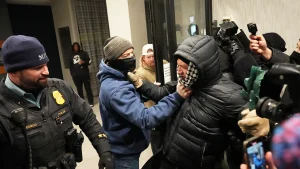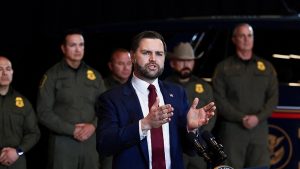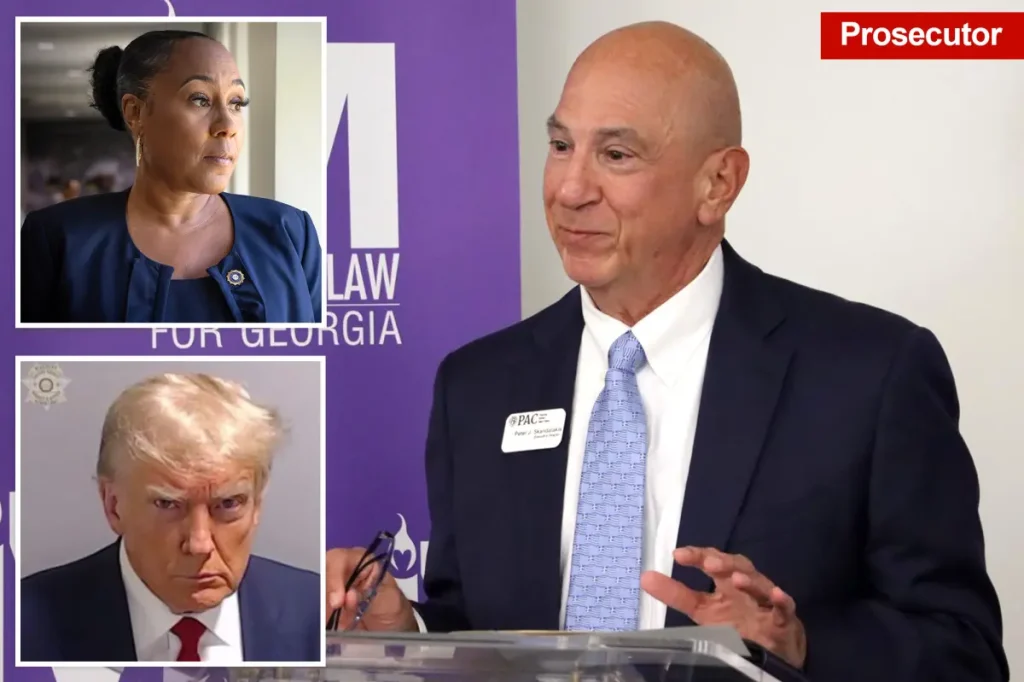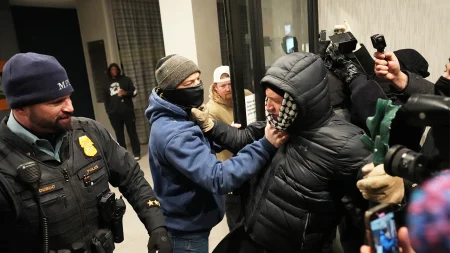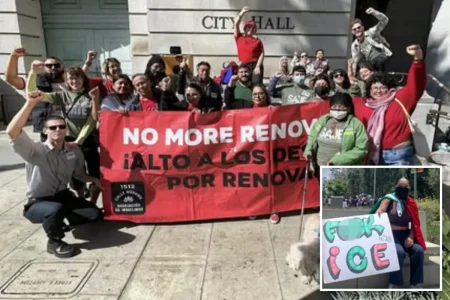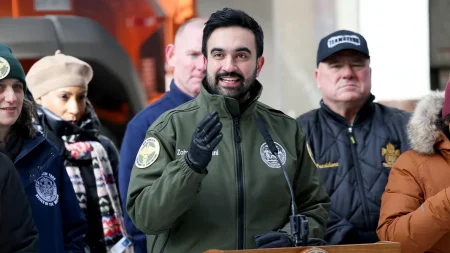Georgia Prosecutor Drops Election Interference Case Against Trump and Allies
In a significant legal development, Peter Skandalakis, the prosecutor who inherited the Georgia 2020 election interference case against former President Donald Trump and his associates, has filed a motion to dismiss all charges. The decision marks the end of what had become an increasingly complicated legal battle in Fulton County, one that had attracted national attention and intense political scrutiny since its inception.
Skandalakis, who stepped into the role after failing to find any other prosecutor willing to take on the case following Fulton County District Attorney Fani Willis’s removal, described the prosecution as being “on life support” in his 23-page filing. The candid assessment reflects the challenging circumstances surrounding the case, which had already faced numerous procedural hurdles and political complications. His decision to personally handle the matter came only after an extensive search for qualified prosecutors willing to navigate the politically charged environment proved unsuccessful, highlighting the extraordinary nature of the proceedings and the reluctance among legal professionals to become involved.
The prosecutor’s reasoning centered largely on his belief that the appropriate authority to pursue such charges was former special counsel Jack Smith, who had previously brought similar federal charges against Trump. Skandalakis noted that Smith, “with all the resources of the federal government at his disposal,” had already concluded that continuing with the prosecution would be “fruitless” following Trump’s election in 2024 and the subsequent dismissal of the federal case. This acknowledgment suggests a recognition of the practical difficulties in pursuing state-level charges for conduct that overlaps substantially with matters typically handled at the federal level, especially after the federal case had been abandoned. The decision represents a pragmatic assessment of the case’s viability given the changed political landscape and legal precedents established in related proceedings.
In his filing, Skandalakis provided a thorough explanation for his decision, emphasizing that pursuing charges “on essentially federal grounds would be equally unproductive” at the state level. This perspective reflects a growing recognition among legal experts that the overlapping jurisdiction between state and federal authorities in election-related matters creates significant complexities. The prosecutor’s decision takes into account the Supreme Court’s ruling in Trump v. United States, which had implications for the scope of prosecutorial authority in cases involving former presidents, as well as the “years of litigation such a case would inevitably entail.” These considerations point to a cost-benefit analysis that ultimately favored dismissal over continued prosecution.
The dismissal represents the latest development in what had been one of the most high-profile criminal cases against Trump, who faced charges alongside 14 co-defendants for alleged efforts to overturn Georgia’s 2020 election results. The case had initially gained momentum under Willis’s leadership, resulting in a dramatic indictment that accused the defendants of participating in a criminal enterprise to keep Trump in power despite his electoral defeat. However, the prosecution faced mounting challenges, including questions about Willis’s conduct and the broader political implications of pursuing a former president who had subsequently won re-election, factors that ultimately contributed to Skandalakis’s conclusion that continuing the case would not serve the interests of justice.
This decision effectively closes a contentious chapter in the legal aftermath of the 2020 election, though it leaves unresolved questions about accountability for actions that many viewed as threatening to democratic processes. Critics will likely view the dismissal as evidence that political considerations can overwhelm legal proceedings, while supporters will see it as a correction of what they considered an overreach by prosecutors motivated by political animus. Regardless of one’s perspective, the case’s conclusion illustrates the extraordinary challenges involved in prosecuting political figures for election-related conduct, particularly when jurisdictional boundaries between state and federal authorities remain contested and when the political landscape shifts dramatically during the course of legal proceedings.
